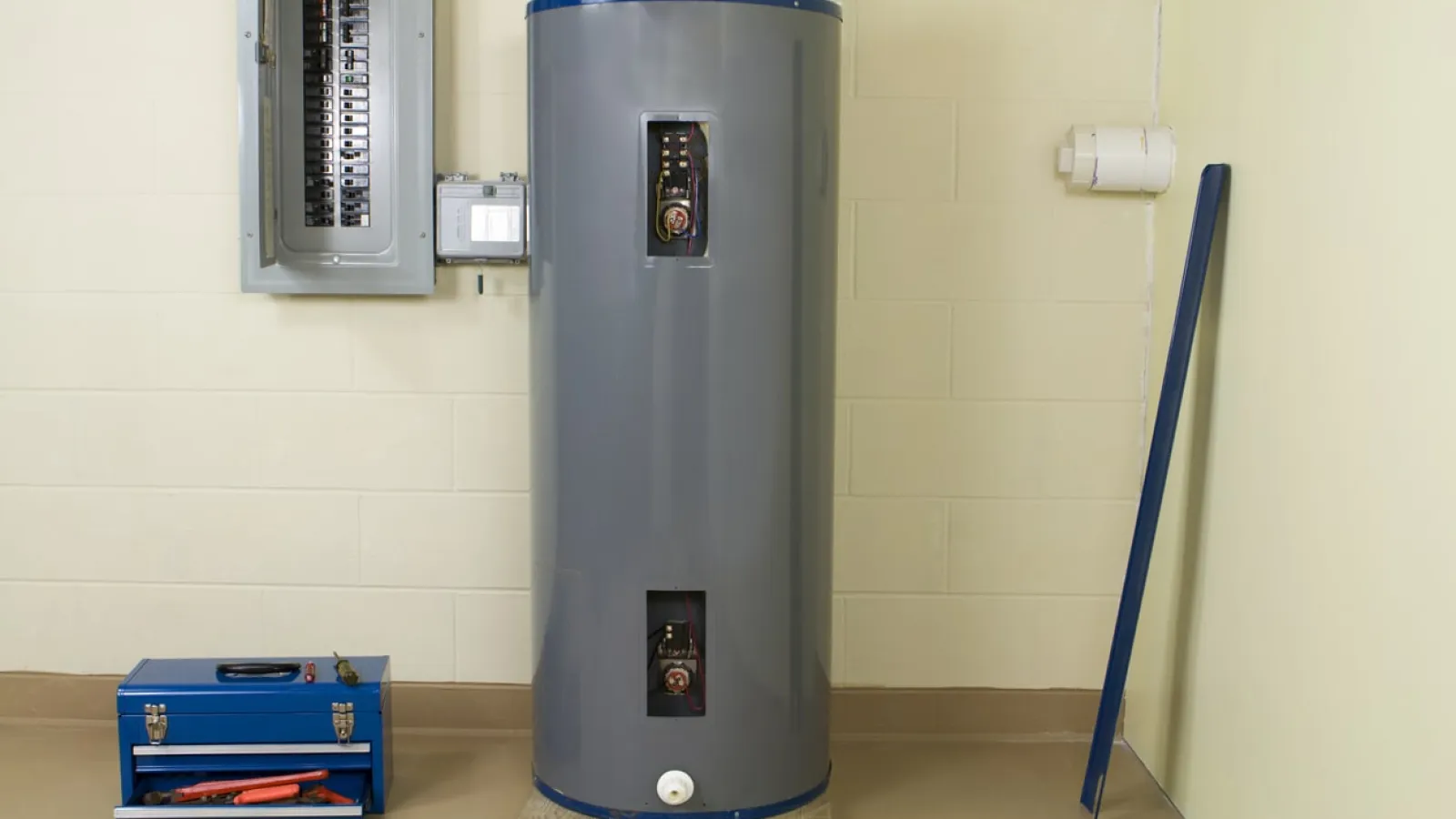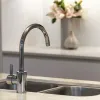Fifteen years ago, choosing a new water heater was pretty simple. A plumber dropped by, disconnected and removed your old tank, and replaced it with a similar one. Done.
Nowadays, you've got a lot more options for replacing an aging or broken water heater. In addition to new technologies that improve water heater efficiency by leaps and bounds, you can opt for plumbing arrangements that provide instant hot water to any faucet or shower in your home. It all depends on your priorities - and your budget.
Let's take a look at some of the water heater possibilities to choose from.
First things first: Be choosy about water heater installation.
The quality of your water heater installation is just as important as the quality of your water heater, especially if you're using natural gas. Always work with a licensed plumber and be sure your installation includes:
- Water pressure check: High pressure from the street is a big reason water heaters fail. 80 PSI is the absolute maximum pressure you want for your plumbing system, and lower is better. Before installing a new water heater, your plumber should check the pressure and, if needed, install a pressure-reducing valve.
- Thermal expansion tank: Your water heater should always include an attached thermal expansion tank, but lots of plumbers in Atlanta still aren't adding them! A properly charged thermal expansion tank helps prevent leaks and mitigate the potentially negative consequences of thermal expansion inside your water heater.
- Safety inspection: If you're using natural gas to heat your water, your plumber must take steps to prevent carbon monoxide leaks during installation. Furthermore, he or she should perform a safety inspection following installation to ensure that no carbon monoxide is leaking into your home.
Now about those water heaters…
What is a good water heater if you care about cost?
Conventional water heater tanks offer the lowest up-front costs.
Are they the most energy-efficient options out there? Not by a long shot. But the models available today are more efficient than the ten or fifteen-year-old tank you're probably replacing!
One way to optimize efficiency with a standard tank is to downsize your unit. For example, a family of three might not need an 80-gallon water heater. Just because that's the size that was in your home when you moved there doesn't mean it should be the size of your replacement.
40 or 50-gallon water heaters are usually sufficient for families of three or four, but your needs might be different.
What are the most energy efficient water heaters?
At PV Heating, Cooling & Plumbing, we're energy efficiency enthusiasts. As such, we love installing ultra-efficient, long-lasting water heaters!
At the time of publication, heat pump water heaters qualify for federal energy efficiency rebates. Not only do you save money on your utility bills, but you can save thousands on a new water heater that's ultra-efficient!
In any event, here's a rundown of the most energy efficient water heaters on the market today:
Heat pump water heaters
A heat pump water heater—and this is a direct quote from the U.S. Department of Energy—works like a refrigerator in reverse. Instead of removing heat from a small, confined area, heat pump water heaters remove heat from the surrounding environment and bring it inside the tank.
The process is significantly more efficient than what occurs inside conventional water heater tanks, saving you money every month.
Tankless water heaters
With a tankless water heater, hot water doesn't sit in a tank and wait for you to run the faucet. Instead, the unit heats water on demand. It only produces hot water when you need it for however long you need it.
In other words, you will never run out of hot water with a tankless water heater.
Additional benefits include:
- Efficiency: Tankless water heaters use less energy than standard tanks.
- Size: Since they're small, tankless water heaters are great options when you're starved for space.
- Durability: They tend to last longer than standard water heaters.
- Less risk: You're less prone to flooding because they don't hold any water.
What about instant hot water?
Many people are looking for a way to speed up the process of bringing hot water to their faucets. If your shower is located far away from your water heater, you know how frustrating it can be to wait for hot water to get there!
Hot water recirculation pumps continuously deliver water through your hot water pipes and back to the heater. The result? Hot water is always close by, even if a faucet is as far away from your water heater as it can be.
In other words, you get instant hot water.
Note that there's a common misconception about tankless water heaters providing instant hot water. Tankless units provide endless hot water. Recirculation pumps provide instant hot water.
So, what is a good water heater to buy? The one that addresses your priorities.
Here's a quick cheat sheet for selecting the right water heater. If your top priority is…
- Up-front costs: Go with a heat pump water heater if current rebates make it the best option. Otherwise, go with a standard tank.
- Energy efficiency: Choose a heat pump water heater. They're the most efficient by far.
- Saving space: Tankless is the best option.
- Instant hot water: Recirculation pumps are the way to go, regardless of the water heater you choose.
And always be sure to select an installer who cares about the longevity of your water heater, the integrity of your plumbing system, and the safety of your family. Water heater installation is no joke. Doing it wrong could lead to expensive—or even dangerous—consequences.
PV Heating, Cooling & Plumbing knows water heaters, and we're dedicated to proper installation methods. Contact us today to discuss water heater options for your Atlanta area home!





